Iranian-Armenian women have a history of being unconventional and progressive in many ways. In the world of arts, many first pioneering cultural events in Iran were made possible by the efforts of Armenian women. Iranian-Armenian women paved the way in the fields of dance, song, music, painting, miniatures, theater and cinema. One of these women was a shining star in theater and cinema. And when the name Irene Zazians led the billing for a film, then cinemas would be dominated by that film.
Irene Zazians was born in the Caspian city of Babolsar on August 12, 1927. In 1943, when she was only 16 years old, her family moved to Tehran. At around the same time, she married her teacher, Mohammad Asemi, a journalist, poet and the editor of Kaveh magazine. The couple later separated but Asemi played an important role in setting Zazians on her path as an artist.
In high school Irene performed in student productions, paving the way for her career as a professional actor.
Zazians first appeared on stage in a play called “Honorable Employee.” The role was given to her by Loreta, the wife of Abdolhossein Noushin, the founder of the New Theater in Iran. Noushin, a founding member of Iran’s communist Tudeh Party, was arrested and imprisoned after the attempted assassination of Mohammad Reza Shah in February 1949. Loreta and Zazians had visited Noushin in prison, where he cast Zazians in the role. In 1950, she performed in Oscar Wilde’s “Lady Windermere’s Fan” at the Saadi Theater, another production by Abdolhossein Noushin.
Abdolhossein Noushin escaped from prison in 1949 with other Tudeh prisoners and fled to the Soviet Union. The Noushin theater group disbanded as a result and Zazians had to either join another group or Abandon her dreams of becoming a star.
Mohammad Ali Jafari was one of Noushin’s most dedicated students. Jafari, who had also been in prison, was released in 1954 and began gathering his former colleagues together. Irene had an opportunity to join the Jafari arts group and continue her artistic activity with women artists such as Turan Mehrzad and Shahla Riahi.
Irene’s brilliant theater performances prompted Mohammad Ali Jafari and Ataollah Zahed, another director, to cast her in their films. She first starred in the film “The Man Who Suffers,” directed by Jafari and then in “Awaiting” by Ataollah Zahed.
In the late 1950s, Iranian cinema screens were dominated by Italian films. But the release of “Messenger of Paradise,” directed by Samuel Khachikian and written by Hossein Madani, released Iranian cinema from Italian cinema’s dominance.
Zazians had previously said about her film roles: "My acting was different in different roles. Each role had its own characteristics, and I tried to understand the women I was playing. It was very interesting for me to try to understand these women and study them. I have always said that playing other women helped me to evolve as an actor."
“The Interim Husband”
One of the most famous and controversial films starring Irene before Iran’s 1979 Islamic Revolution was “Mohallel,” or “The Interim Husband,” a romantic comedy produced in 1971 and directed by Nosrat Karimi. The film satirically critiqued sharia law regarding divorce and remarriage for women as well as the role of clerics.
Mohallel is an Islamic practice in which a woman, after being divorced by a man, marries another man, consummates the marriage and divorces again to be able to remarry her former husband.
Karimi was arrested after the Revolution for making “Mohallel” and spent several months in prison. The film was denounced by clerics and led to Nosrat Karimi being banned from working and teaching in addition to his prison sentence.
Zazians was also banned from working after the revolution and went to Germany in 1983, joining her sister who had previously emigrated there.
"I was accustomed to the life of cinema for many years, and I lived on my income from movies I acted in, and because I had no husband or children, cinema was my whole life," Zazians later said about her life in Iran. "I needed to replace cinema with something in my life. In 1983, I went to Germany to visit my sister, and I told myself that, now that I could no longer work in cinema, I had to think of a solution. With the help of friends in Frankfurt, I enrolled in an intensive language class and took a 14-month course to become a beautician. I did not want to seek refuge in a foreign country and ask help from a foreign government. Despite my sister's insistence, I preferred to return to Iran and be with people who had seen my films. In 1985, in the midst of the bombing of Tehran [during the 1980-88 Iran-Iraq War] I returned and immediately resumed work."
Zazians starred in two post-revolutionary films – ”Award” directed by Alireza Davoud-Nejad and “Red Line” by Masoud Kimiai – but both movies were later banned. She also appeared in several episodes of the enduring series “Hezar Dastan,” directed by Ali Hatami, which went on air from 1987. However, all the scenes in which Zazians had played were cut by the censors. Like so many other artists, this popular Iranian actress was effectively banned from any artistic activity by the new Islamic Republic.
After many years, in 2008, Zazians played a short role in “Shirin” by Abbas Kiarostami. Later she also appeared in Shapur Gharib’s 1973 film called “Rooster,” alongside prominent actors such as Davood Rashidi and Saeed Rad.
“I like all my roles and cannot prefer any of them or cannot even say which director or which actor was more important to me," she said of the roles she played. "But what is certain is that I preferred ‘Rooster’ because of the different roles I played."
Her performances in popular films such as “Goodbye Comrade” by Amir Naderi, “Baluch” by Masoud Kimiai, “Rooster” and “Naked Until Noon with Speed” by Khosrow Haritash, as well as her role as Mahd-e Olia, the 19th-century Qajar Kind Naser al-Din Shah's mother, in the series “Soltan-e Saheb-Gharan” made by Ali Hatami, have since been immortalized.
Irene Zazians died on July 28, 2012, in Tehran, at the age of 85, due to complications from lung cancer.




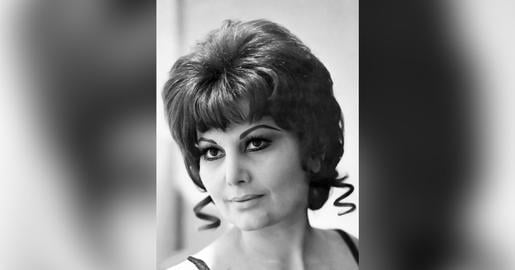
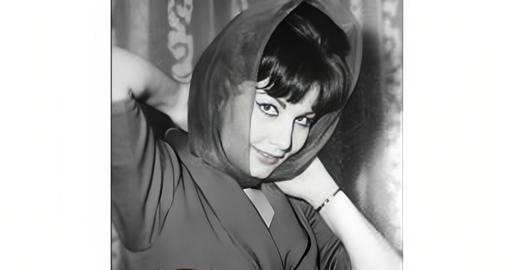
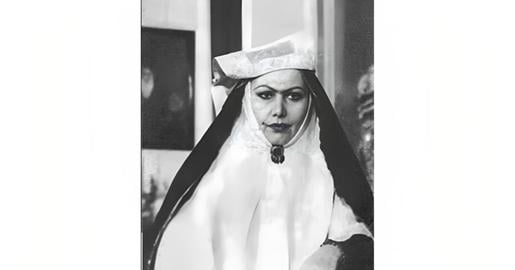
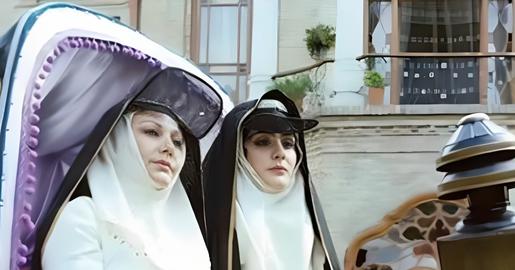
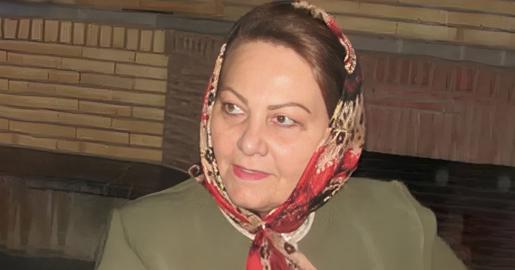










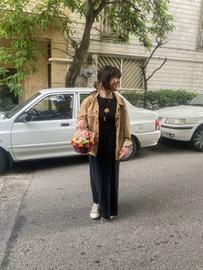
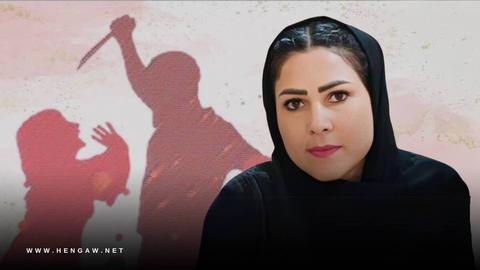








comments